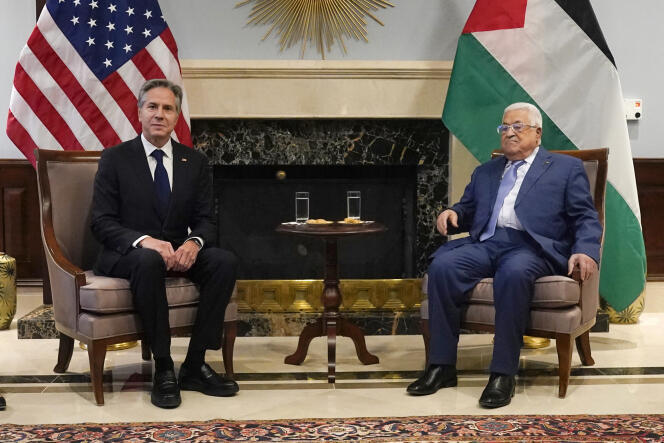


Mahmoud Abbas, 87, has been practically silent since the Hamas attack against Israel on October 7 and the start of bombing in the Gaza Strip. He finally spoke up on Sunday, October 15 during a phone call with Venezuelan President Nicolas Maduro. "Hamas' policies and actions do not represent the Palestinian people," stated the disputed leader of the Palestinian Authority. Without any legitimacy or power, the oldest leader in the Arab world is a good example of 50 years of missed opportunities and dashed hopes.
It was under his assumed name, Abu Mazen, that the current leader of the Palestinian Authority first appeared in Le Monde, on January 29, 1977. The French-Israeli journalist Amnon Kapeliouk mentioned the declaration by the moderate member of the Palestine Liberation Organization (PLO) Central Committee that authorized contacts with the Israeli state and any organization that recognized "the legitimate rights of the Palestinian people." During the last two decades of the 20th century, Abbas was first and foremost a man in the shadows.
In 1993, at the time of the Oslo Accords, which aimed to resolve the Israeli-Palestinian conflict, the first portrait written by AFP briefly showed his "discrete" personality. He was described as a faithful follower of the historic leader, Yasser Arafat. He is not "particularly popular" in his own camp, where activists "don't know him." Despite his central role in the signing of the historic agreements, he has not received the Nobel Peace Prize, unlike the other three co-signatories, Arafat and the two Israeli statesmen, Shimon Peres and Yitzhak Rabin, wrote Patrice Claude, Le Monde's correspondent in Israel. For Claude, Abbas, who defends the idea of two states with Jerusalem as the capital, is above all "the man of secret contacts," he wrote on July 1, 1997.
Appointed prime minister of the Palestinian Authority in 2003, Mazen became a public figure late in life, at almost 70, after the failure of the latest peace agreements and new deadly confrontations. "Mahmoud Abbas is not meant to be a figurehead. The question is how much freedom of action he will be allowed by a weakened Yasser Arafat, who may fear the shadow of a strong prime minister," wrote Le Monde in its March 13 editorial.
The minister soon proved to be a "mediocre manipulator," according to Gilles Paris, in April 2003. The Jerusalem correspondent emphasized Abbas' political "fragility" after a suicide attack in Tel Aviv a few hours after his inauguration.
You have 58.67% of this article left to read. The rest is for subscribers only.
